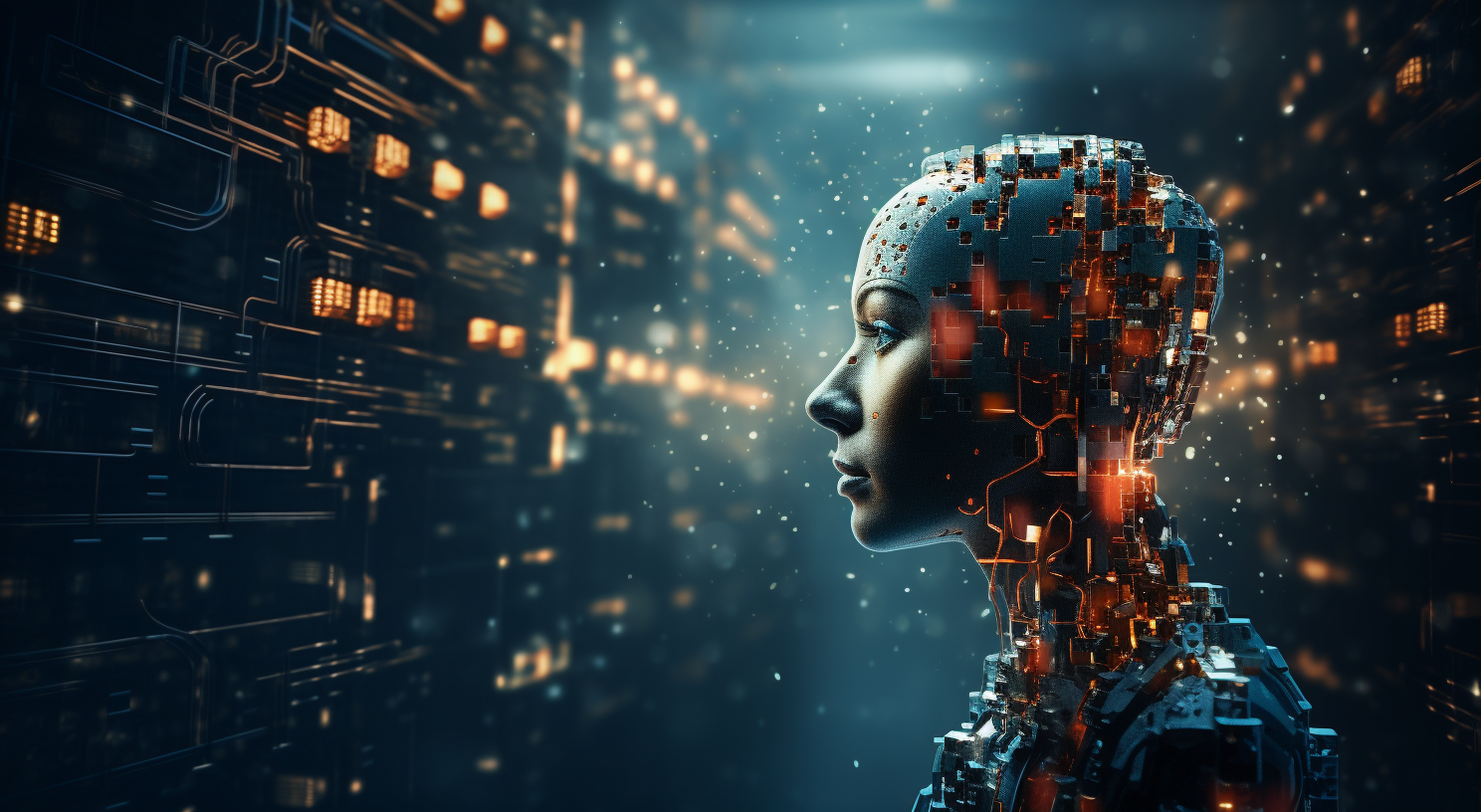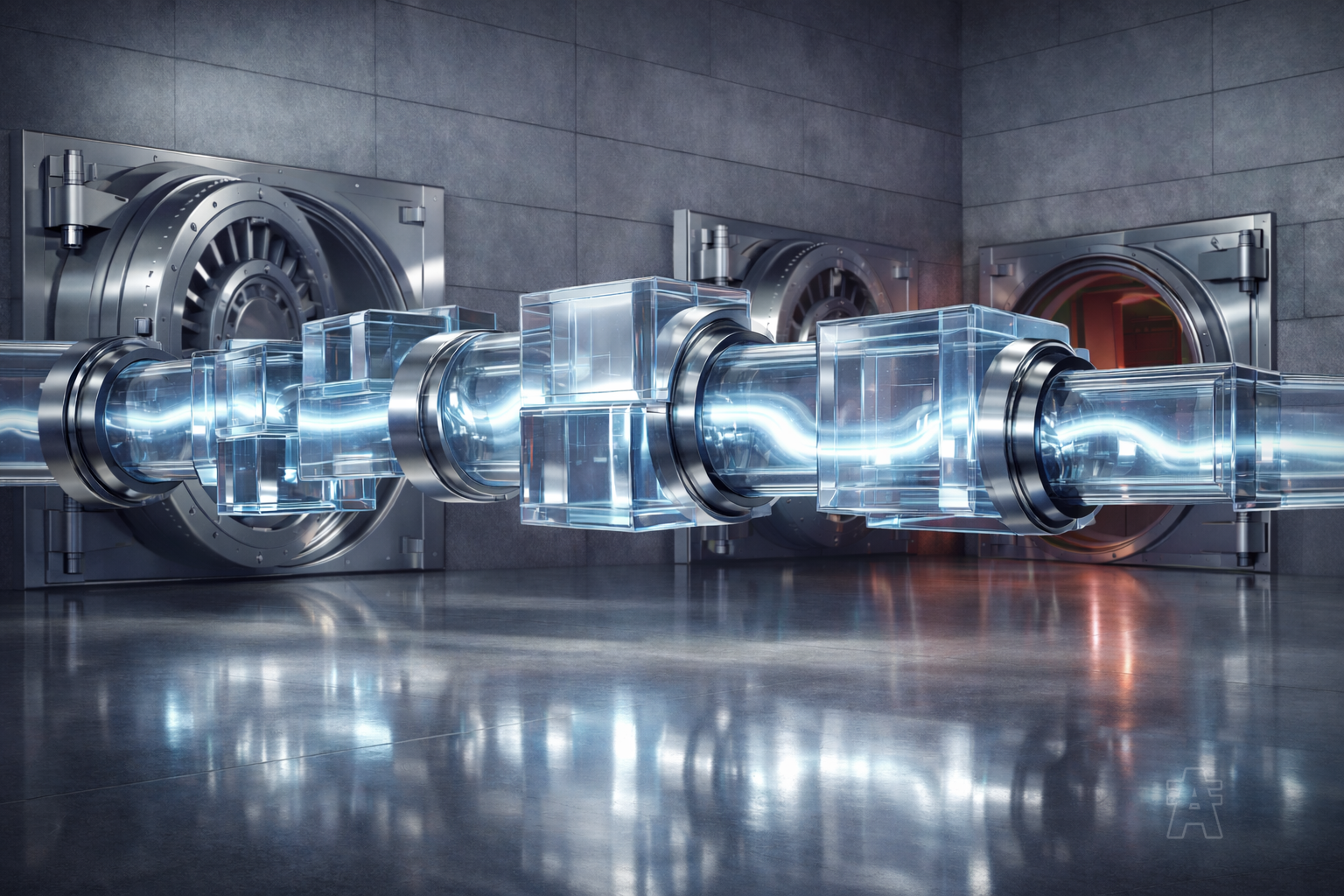Table of Contents
The convergence of Artificial Intelligence and blockchain technology marks a pivotal moment in the realm of computer science. AI, a field that enables machines and software to emulate human intelligence, is characterized by its ability to analyze complex data, solve intricate problems, and make informed decisions with limited human input.
In the current technological era, global giants such as Microsoft, Google, Apple, and Meta are at the forefront of testing and implementing AI systems and bots. This surge in AI adoption is attributable to its potential to transform a multitude of industries, including healthcare, automotive, finance, and most recently, blockchain. As such, understanding how AI can augment the capabilities of blockchain developers is becoming increasingly crucial.
Before diving into the intricacies of how AI can serve as a potent tool in the arsenal of blockchain developers, it is essential to explore two of blockchain's fundamental properties that AI can significantly enhance.
The Interplay Between AI and Blockchain: Understanding the Core Characteristics
The Open-Source Ethos of Blockchain
Blockchain technology is celebrated for its open-source nature, which democratizes access to its underlying code and protocols. This transparency invites AI developers to utilize these open-source resources to either refine existing blockchain functionalities or construct new blockchains from the ground up.
Harnessing the Power of Data
As the blockchain industry strides towards a data-intensive future, the significance of data collection and storage becomes paramount. Blockchain is poised to deal with an immense volume of data, encompassing network configurations, user behavior, and security logs. AI's proficiency in rapidly processing and analyzing this data eclipses human capability, offering invaluable insights that empower developers to optimize and enhance their blockchain systems.
For those not directly involved in development, the relationship between AI and emerging concepts like the metaverse presents an equally fascinating area of exploration.
AI's Role in Streamlining Blockchain Development Processes
Data and Market Analysis for Informed Blockchain Design
Prior to embarking on blockchain development, it's crucial for developers to identify user needs and market demands, which includes keeping up with the latest developments and trends in the blockchain and cryptocurrency sectors, such as those found in crypto news. AI can play a transformative role here, mining extensive data from diverse sources, including real-time market trends and user behaviors to analyze swiftly and pinpoint trends and user preferences. This not only saves valuable time but also allows developers to make informed decisions on feature integration, incentive structures, consensus mechanisms, and strategic feature roadmaps.
Crafting and Optimizing Smart Contracts
Smart contracts are the foundational elements of blockchain systems, enabling transactions and a variety of applications, including wallet development. AI bots can significantly aid developers in the coding of these contracts, ensuring efficient deployment and rigorous testing to guarantee seamless operations within the blockchain.
Enhanced Error Detection and Bug Prediction
The complex nature of blockchain technology makes identifying and resolving bugs a daunting and often expensive task. Here, AI can bring a transformative change by automating the process of testing, debugging simple errors, and preemptively identifying potential system flaws. This proactive approach ensures a more robust and user-friendly blockchain experience.
Post-Deployment Blockchain Optimization
Once a blockchain system is operational, AI can further contribute by employing machine learning algorithms to enhance operational efficiency and reduce costs. It can analyze blockchain data to pinpoint areas needing improvement, such as scalability, cost-efficiency, and security, and develop smarter contracts for more secure and expedient transactions.
Expanding the Horizons: AI's Broader Applications in Blockchain
Beyond the foundational aspects of building and maintaining a blockchain, AI, when appropriately trained, can extend its capabilities to areas such as wallet development and the creation of decentralized applications (DApps). Additionally, AI can be instrumental in developing identity management solutions, automating Know Your Customer (KYC) processes, and analyzing transactional data to preemptively identify and prevent fraudulent activities on the blockchain.
Navigating the Limitations: The Continued Need for Human Oversight in AI-Driven Blockchain Development
Despite the impressive advancements in AI, its application in blockchain development is not without limitations. AI, at its current stage, heavily depends on human guidance for decision-making and strategic planning. While AI can expedite the development process, it lacks the capability to independently make strategic decisions or evaluate the commercial implications of specific blockchain features.
Human developers continue to play a pivotal role in this ecosystem, responsible for refining AI programs through deep learning training, feeding AI tools with necessary data, and making critical decisions on feature development and implementation.
Looking Ahead: The Future of Blockchain Development with AI Integration
In conclusion, the integration of AI in blockchain development offers a paradigm shift in efficiency and productivity. Developers are likely to increasingly rely on AI-powered tools and software to enhance their productivity, shifting their focus from manual execution to more conceptual and strategic aspects of blockchain design. However, the autonomy of AI in this domain remains limited, and human expertise continues to be indispensable.
As both AI and blockchain technologies continue to evolve, they are set to transform the landscape of numerous industries. The synergy between these two technologies will not only redefine how developers approach their work but also potentially revolutionize the very nature of technological innovation and its applications across various sectors.
The integration of AI in blockchain development heralds a new era of efficiency and innovation, presenting an array of opportunities for developers to enhance their work processes. However, the journey is far from complete, and the evolving relationship between human expertise and AI will continue to shape the future of blockchain technology.








